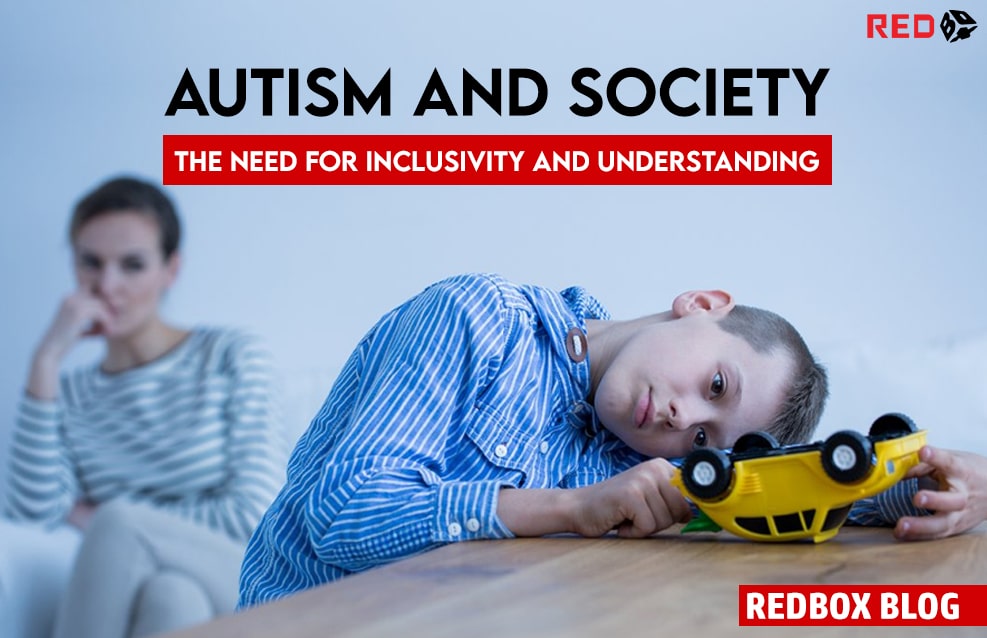Autism and Society - The Need for Inclusivity and Understanding

What is Autism Spectrum Disorder (ASD)?
Autism Spectrum Disorder (ASD) is a neurodevelopmental condition characterized by a wide range of symptoms and challenges related to social communication, repetitive behaviors, and sensory sensitivities. It is a spectrum, meaning that individuals with ASD symptoms may exhibit varying degrees of impairment and unique strengths, emphasizing the need for individualized support and understanding.
In this insightful video, Dr. Maria Kazmi, a dedicated medical professional, discusses various aspects of autism and the challenges faced by autistic children and their families. She shares her personal journey into the field of medicine and her passion for making a difference in the lives of those affected by autism. Dr. Kazmi explores the unique communication styles and challenges of autistic children, highlights the importance of early diagnosis, and addresses the societal stigma surrounding autism.
The conversation also covers strategies for helping autistic children, government support, financial challenges, and the role of businesses in promoting job access. The need for parental counseling is emphasized, underscoring the importance of emotional and practical guidance for families dealing with the concept of autism meaning and the treatments behind.
The Prevalence of Autism: Statistics and Trends
The prevalence of autism has been steadily increasing in recent years. According to the Centers for Disease Control and Prevention (CDC), the latest data suggests that approximately 1 in 44 children in the United States is diagnosed with Autism Spectrum Disorder (ASD). This represents a significant rise from previous estimates.
Furthermore, the World Health Organization (WHO) reports that autism is a global concern, with an estimated 1 in 160 children worldwide being affected by the condition. These statistics highlight the growing importance of understanding and addressing autism as a public health issue. It's crucial to continue monitoring and researching these trends to provide better support and resources for autistic individuals and their families.
The Importance of Early Diagnosis and Intervention
Early diagnosis and intervention are vital in addressing autism. Studies indicate that children who receive early intervention services show significant improvements in language, behavior, and social skills. The American Academy of Pediatrics recommends autism screening at 18 and 24 months. Early detection enhances the quality of life for autistic individuals, underlining the significance of timely support for raising awareness of autism symptoms.
Challenges Faced by Individuals with Autism
Some of the stats reveal that;
- Social Isolation: 53% of autistic individuals experience difficulty making friends.
- Employment Struggles: The unemployment rate among autistic adults is around 85%.
- Mental Health: Autistic individuals are more likely to face mental health challenges, with 64% reporting anxiety and 28% reporting depression.
- Sensory Sensitivities: 75% experience heightened sensitivity to sensory stimuli.
- Communication Barriers: Approximately 40% remain nonverbal.
- Bullying: 63% of autistic students report being bullied, affecting their well-being. These challenges necessitate increased awareness and support.
The Role of Families in Supporting Autistic Individuals
Families play a crucial role in supporting autistic individuals. A survey by the Interactive Autism Network found that 88% of parents report stress due to the unique demands of raising a child with autism. Family support networks are essential; 91% of parents seek information from other families, highlighting the importance of community and understanding in providing effective support throughout autism causes.
Inclusivity in Education: The Need for Special Education Programs
Inclusive education with specialized support is essential for autistic students. The U.S. Department of Education reported that 95% of autistic students receive some form of special education services. However, disparities exist, with only 64% of autistic students graduating from high school within four years, underscoring the need for improved inclusivity and tailored educational programs.
In conclusion, early intervention significantly enhances outcomes, yet challenges persist, including high unemployment rates among autistic adults. Greater awareness, understanding, and support are essential to improve the quality of life for autistic individuals and their families to raise awareness of symptoms of autism in boys and girls.